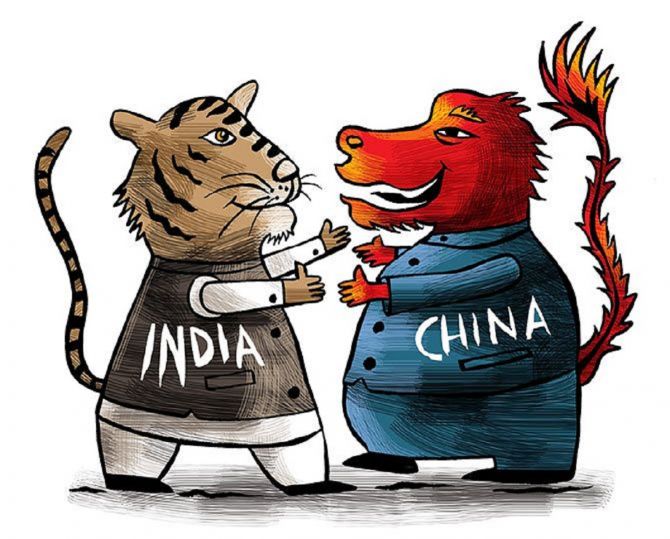Chinese Ambassador Sun Weidong has said peace and tranquility in the border areas with India is important but it is not the "whole story" of the bilateral relations and that the current status of the ties is obviously not in the fundamental interest of either side, remarks that came amid the Ladakh military standoff.

After the standoff erupted in eastern Ladakh in May last year, India has consistently maintained that peace and tranquility in the border areas are essential for the overall development of relations between the two countries.
In an address at a 'Track II Dialogue' on China-India relations on Thursday, Sun, the Ambassador to India, said the two countries should take the path of peaceful development rather than choosing a "wrong path" of confrontation and conflict and that they should "build bridges instead of walls".
At present, China-India relations have come to a crossroad once again, and there is a need to make the right choice rather than undercutting each other, Sun said at the dialogue co-hosted by the School of International Studies of Sichuan University, China Center for South Asian Studies and Manohar Parrikar Institute for Defence Studies and Analyses.
"Ultimately, China and India should work together to take the broad road of mutual respect, dialogue, cooperation and mutual benefit, rather than the narrow log bridge of mutual confrontation, suspicion, attrition and zero-sum competition," he added.
"We should avoid taking a part for the whole or losing sight of the forest for the trees. For example, peace and tranquility in the border areas is important, but it is not the whole story of the bilateral relations."
Without specifically referring to the Ladakh border row, the Ambassador said since last year, China-India relations witnessed difficulties "unseen for many years" and it remained at a low level.
Sun said China and India should enhance mutual trust, strengthen dialogue and properly handle differences and not allow them to become disputes.
He also emphasised that India and China should uphold strategic autonomy and grasp fate in their own hands, noting that some countries, with their ideological bias and 'Cold War' mentality, vigorously seek closed and exclusive "small cliques" with the aim of containing "a third party" and stoking "bloc confrontation" and geopolitical games.











 © 2025
© 2025